Tune in online, from anywhere, June 16-18 for CBV Congress 2021 – the signature event of CBV Institute dedicated to leadership in business valuation. The world has changed and so has our much-anticipated annual Congress. Get the latest thinking and insights to advance valuation expertise and confront new realities. Global registration is open to CBVs and Students, other valuation professionals, business leaders and interested professional associations and organizations. We are presenting the biggest Congress ever to mark the great milestone of reaching 50 years of service as a CBV profession. Not to be missed!
- Experience an interactive, virtual Congress in real-time on a state-of-the-art platform
- Featuring a diverse range of topics, technical BV content, and cutting edge thinking on emerging trends – such as ESG, climate change, and more
- Expert speakers, stimulating keynotes, engaging panel discussions, live Q&A’s
- Network with peers and make new professional connections in a “face to face” virtual setting
- Upskill, learn and ignite professional development, while earning CPD hours
Registration for Congress 2021 unlocks access to three streams of informative, thought-provoking sessions over three days. Plus, get online video access later to any sessions that CBV Institute received authorization to record. All for one price!
Click date to browse agenda, see session descriptions and read about speakers. Watch an orientation video on the virtual platform to get ready.
ORIENTATION VIDEO
June 16 – Business Valuation
How will new ESG realities and economic trends influence the state of business valuation? This stream includes presentations on Climate Change and Valuation, Calculation Reports vs Estimation Reports, Diagnostic and Predictive Data Analytics, COVID – ‘What did we Learn’, Valuation of pre-Revenue Companies, and Best Practices in Financial modelling. A keynote address will be given at 4:30PM EST by Dr. Aswath Damodaran, Professor of Finance, Stern School of Businesss (NYU). Dr. Damodaran will be discussing the COVID experience and lessons learned about markets, fundamentals, smart money, and the importance of story telling.
10:00 – 10:05 OPENING REMARKS
10:05 – 11:05 Climate Change and Valuation
Join us as we explore the impacts of climate change on value, from both an investor’s viewpoint and a valuator’s viewpoint. Climate change is “the defining issue of our time” and has been declared as a financial system risk; its impacts are profound, to be felt across entire industries…but answering how climate change will affect corporate valuations is complex.
Climate change is becoming an increasingly important consideration when making investment underwriting decisions or determining the fair value of an asset for financial reporting purposes in a notional context. As valuators, we recognize that valuing climate change consistently is a challenge. While disclosure frameworks exist (TCFD), there are presently no generally accepted valuation frameworks. We are just beginning to wrap our minds around the possible impacts to financial markets, stock prices, and the impacts on deals, and there is no consistency across the investment or valuation community as to how the risks/opportunities associated with climate change should be considered or “priced”. What actors could have a material impact on the value of subject companies?

David McGraw
OTPP
Chief Financial Officer
David has more than 25 years of senior management experience in financial management, corporate finance, banking, and mergers and acquisitions.
Before joining Ontario Teachers’ in 2004, David was CFO of Bell ExpressVU. Prior to that, he was Vice-President, Mergers & Acquisitions/Corporate Finance, at BCE/Bell Canada and Partner-in-Charge of the Corporate Finance Group of a major international accounting firm.
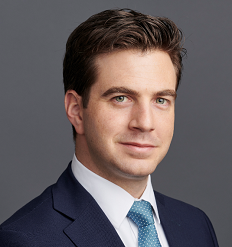
David Krant
Brookfield Asset Management
Chief Financial Officer, Infrastructure Group
David joined Brookfield in 2012, and has held various positions during his time at the company.
David is responsible for overseeing the finance and accounting function of Brookfield Infrastructure Partners , in addition to the valuation process for the Infrastructure Group. Prior to joining Brookfield,
David was in the Assurance and Advisory group at E&Y LLP. David holds a CPA, CA designation and a Bachelor of Commerce
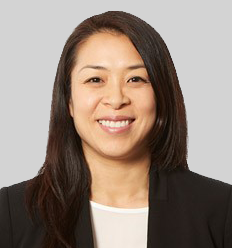
Sandra McEwen
OTPP
Managing Director
Sandy oversees the Finance teams who provide governance over and are responsible forprivate investment valuations, calculate and report daily risk metrics, and independent vetting of valuation and risk models. Sandy has more than 20 years of valuation, audit and leadership experience. She holds a Chartered Accountant (CA, CPA) and Chartered Business Valuator (CBV) designations. Prior to working at OTPP, Sandy was a Vice President of Valuations with PwC Canada.

Ken Goodwin
PwC LLP
Partner, National Valuations Leader
The focus of Ken’s activities is providing business and asset valuation advice in a variety of
contexts that include corporate reorganizations, mergers and acquisitions, tax and estate
planning, shareholder transactions, regulatory purposes, strategic business decisions and
financial reporting. Ken has worked with several of Canada’s largest pension fund and private
equity players, and regularly assists clients across a number of different industries.
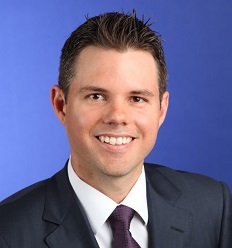
Kevin Hutchinson
OMERS
Vice President, Investment Finance & Valuations
Kevin is responsible for advancing key strategic initiatives on behalf of the Office of the CEO and for managing priorities and working closely with leaders across the organization.
Prior to assuming this role, Kevin led the OMERS private investment valuation function with focus on the infrastructure and private equity asset classes.
Kevin is a Chartered Accountant (CPA, CA), Chartered Business Valuator (CBV), and holds the Financial Risk Manager (FRM) professional designation.
MODERATOR
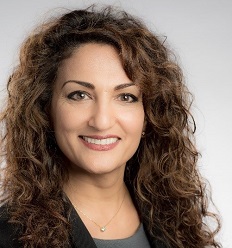
Davinder Valeri
Canadian Chapter A4S CFO Leadership Network
Executive Director
With a deep understanding of energy, infrastructure and financing, Davinder has been responsible for all facets of decision making to achieve organization goals and objectives. At CPA Canada, Davinder leads a team that conducts technical research to develop guidance and thought leadership on emerging and current issues related to strategy, risk, technology, finance, management, climate change and sustainability to support CPA members in business, government and not for profit to be more resilient, adaptive and innovative.
Recording
11:15 – 12:15 Calculation vs Estimate Reports: Are you doing too little…or too much?
CICBV guidance on the level of work to be performed for each type of valuation report, particularly calculation versus estimate report, leaves a lot of room to interpretation and professional judgment. Our panelists will share their experience dealing in their day to day work environment with the types of report they need to provide in different contexts, including dealing with issues such as level of complexity, competitive bids, fee pressure and limited information available. They will also discuss very candidly on how they deal with the level of work to be performed for each type of report and when the use of a calculation versus estimate report is appropriate. The panel will also debate the utility of calculation reports, particularly in light of any proposed changes from the adoption of International Valuation Standards.
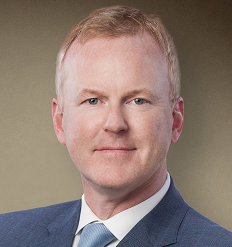
James Dyack
MNP
Partner
With more than 21 years of experience in business valuations and management consulting, James focuses on corporate valuations and advisory services related to disputes, tax, transactions and financial reporting. He has qualified as an expert witness and has provided expert testimony in Federal and Provincial matters and has supported clients in dispute matters related to the Canada Revenue Agency.
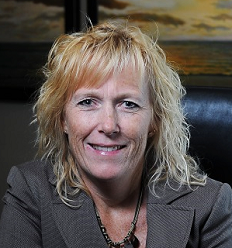
Eveline Reid
Vine Valuations Inc.
President
A Chartered Accountant (1992), Chartered Business Valuator (1997 Silver Medalist) and Certified in Financial Forensics (2017), Eveline has worked exclusively in business valuation, financial litigation and related matters since 1993 providing services in support of family law matters, shareholder disputes, economic loss analysis, shareholder oppression, estate and tax planning, financing, and corporate acquisitions and divestitures.
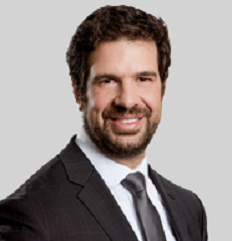
Patrick Ouimet
Raymond Chabot Grant Thornton
Partner
Over the past 20 years, Patrick has supervised and performed close to 1,000 valuation and financial litigation assignments for both public and private entities. He carried out mandates in various valuation contexts (fairness opinion, financial reporting, litigation, business acquisition and sale, raising of capital and tax planning, financial modeling for decision-making). He has also carried out several litigation mandates.
MODERATOR
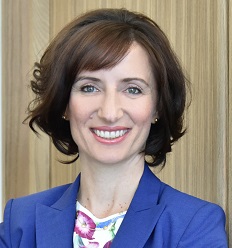
Federica Nazzani
Capital Assist (Valuation) Inc.
Managing Partner
Federica holds the FCPA, FCBV and CFF designations. She is also the recipient of the 2018 RBC Businesswoman of the Year (Italian Chamber of Commerce – ON), and the 2015 Professional of the Year (Windsor Regional Chamber of Commerce), Federica currently serves as Chair of the Board of Directors of the Art Gallery of Windsor.
RECORDING
12:45 – 1:30 Visual Analytics and Information Design Fundamentals
Join the panel as they review what visual analytics is and how you can use it in your everyday reports and dashboards.
They will cover how design principles can be applied to data to communicate insights clearly and efficiently. In addition to looking at information design principals, they will go over visual analytics best practices. This entails chart formatting and how best to communicate certain types of data. Lastly, they will illustrate how these principles can be applied to real examples.
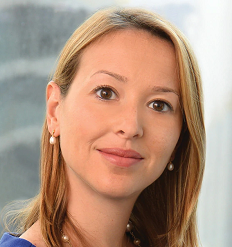
Talia Abramowitz
Deloitte’s Canada AI Practice
Partner, Chief Operating Officer Omnia
Talia is the Chief Operating Officer for Omnia, managing the start-up and day-to-day operations of Deloitte’s Artificial Intelligence practice in Canada. Previous roles include Chief of Staff and Chief Operating Officer of Deloitte’s National Financial Advisory Practice as well as the Managing Partner of the Toronto Valuations practice. Talia is an experienced valuator, project manager, strategy developer and business operator.

Stefan Popowycz
Deloitte’s Canada AI Practice
Partner, Visual Analytics Leader Omnia
Biography Unavailable

Alex Gebhardt
Deloitte’s Canada AI Practice
Manager, Omnia
Alex is a Manager in the Omnia AI practice at Deloitte Canada. He specializes in data visualization, information design and AI enablement. By uncovering key insights hidden in client’s data, Alex is able to help drive better decision making and comprehension of complex problems.
RECORDING
1:40 – 2:25 COVID 19: Impact on valuations – Observations since March 2020

Francois Huvelin
Deloitte
Partner
Biography Unavailable

Sean Smith
Deloitte
Director
Biography Unavailable
REcording
2:35 – 3:20 Valuation of pre-revenue companies: Insights from investing in Silicon Valley and in Cannabis
Hockey stick projections, founders with grand plans and visions for the future, a hot market bidding prices up; but what is it really worth? Valuing pre-revenue companies is extremely challenging, but something that Venture Capital firms need to do on a daily basis. Join us as our panelists walk through some of the challenges that they have faced from a valuation perspective, insights they have with the benefit of hindsight, and what they would suggest to fellow CBV’s when faced with similar issues.
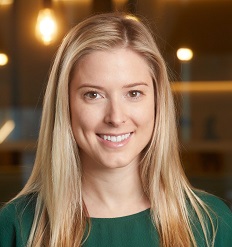
Michelle Killoran
OMERS Ventures
Principal
Biography Unavailable

Eddie Lucarelli
Canopy Rivers
Chief Financial Officer
Prior to joining Canopy Rivers, Eddie was a Vice President in the Mergers & Acquisitions group at TD Securities. His team provided sell-side and buy-side M&A advisory services to large and mid-cap Canadian companies. During his time at TD, Eddie worked on several transformative transactions in the telecommunications, media, and real estate industries.
MODERATOR
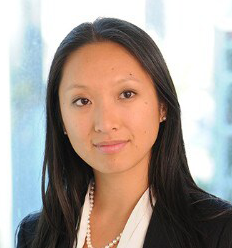
Terie Chan
Deloitte
Partner
Biography Unavailable
REcording
3:30 – 4:15 Best Practices in Financial Modelling
Understanding Best Practices of Finance Modelling in Excel is essential to improving one’s ability to build, review or analyze financial models at all levels. As a leader in project finance financial modelling training worldwide, Mazars has developed a number of useful tools to build and sensitise robust and transparent cashflow based financial models and dramatically increase Excel efficiency. During this presentation, Anna will share Mazars’ globally proven modelling methodology and the importance of adhering to the modelling principles and a structured approach that is applicable across a range of industries.
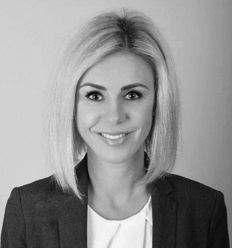
Anna Slisarenko
Mazars
Director, Energy & Infrastructure
Anna leads the Energy, Infrastructure & Environment practice, with a focus on valuations, model build and audit, financial modelling training and advisory services, supporting investors in the region pursuing infrastructure assets both in Canada and globally. Anna brings over 13 years of experience in project and corporate finance, structuring and execution, asset and portfolio management, project development and operations in infrastructure and renewable energy sectors.
Recording
4:30 – 5:30 KEYNOTE: A Crisis as Crucible: COVID Lessons Learned, Unlearned and Relearned
In every crisis, three things happen. First, you lose perspective, lost in the weeds as you try to understand what is happening on a day-to-day basis. Second, you lose faith in everything that you thought you knew, as you are confronted with the unusual and uncommon. Third, you outsource your thinking, and look to experts to tell you what to do. In this session, I talk about the lessons I have learned during this crisis about markets (they are not as chaotic as they look), about fundamentals (they matter more than ever), about smart money (there is no such thing) and the importance of story telling. I hope that the session, rather than giving you my answers to your questions, gives you a framework for finding the answers on your own.

Dr. Aswath Damodaran
NYU
Professor of Finance, Stern School of Business
Aswath is the Kerschner Family Chair Professor of Finance at the Stern School of Business at New York University. He teaches the corporate finance and valuation courses in the MBA program. His research interests lie in valuation, portfolio management and applied corporate finance. He has published in the Journal of Financial and Quantitative Analysis, the Journal of Finance, the Journal of Financial Economics and the Review of Financial Studies.
recording
5:30 – 6:30 Virtual Networking
June 17 – LITIGATION
What’s new and newsworthy in the world of litigation? This stream includes presentations on Challenges with Litigation Engagements for Small Businesses, Limited Critique Reports, Being an Asset and Preventing Liabilities when Opining Assets and Liabilities, Causation and Financial Losses: Factors to Consider, The Expert’s Role and Reflecting the Impact of Unrelated Factors (COVID-19), Forecast Validation for Economic Loss Quantification, and When does an Expert become an Advocate.
10:30 – 10:35 Opening Remarks
10:35 – 11:20 Smaller, not Simpler – Challenges with litigation engagements for smaller businesses
Litigation engagements for smaller businesses are not simply scaled down versions of engagements for larger clients; rather they pose unique challenges that often require different approaches over the course of the engagement. Challenges posed when calculating business value or damages for smaller businesses include: the quality and availability of financial documentation; identifying personal expenses paid by the business; the potential for personal goodwill; communicating directly with the business owner (or their spouse); and, striking the right balance between the analysis performed/fees charged and quantum of the potential claim. Join Tim and Antonina as they discuss these differences and provide best practices for dealing with the resultant challenges.
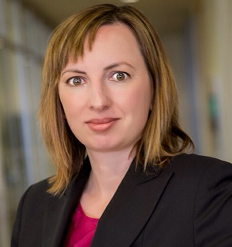
Antonina Wasowska
Cohen Hamilton Steger & Co. Inc.
Principal
Antonina practices exclusively in the areas of business valuation, forensic accounting investigations, and the quantification of economic damages. Antonina has particular expertise in business valuations and forensic accounting investigations relating to matrimonial matters, shareholder disputes, and corporate reorganizations. Antonina’s casework also includes the quantification of economic damages resulting from breach of contract and other financial disputes.

Tim Zimmerman
RSM Canada Consulting LP
Partner
Biography Unavailable
recording
11:30 – 12:15 Limited Critique Reports – Guidance, Usage and Issues
Limited Critique Reports (“LCRs”) are generally issued in the context of disputes and litigation to help identify the key issues where differences of opinion, approach, or facts may exist between the CBV and the financial advisor of the other party. In many scenarios, clients and their legal advisors may wish to know, not just the qualitative directional impact (up or down) of these differences of opinion, approach or facts, but also the quantitative impact, particularly when numerous impacts are involved or impacts are complicated to compute. As the LCR reporting standards are intended to prevent CBVs from expressing the author’s own conclusion or loss quantification when limited work has been performed, many CBVs address this need of clients and legal advisors by issuing their own independent valuation or expert report. Sometimes, CBVs are addressing this need by disclosing directional impacts in their LCRs which illustrate how the conclusion of the first CBV would be impacted by changes required (e.g., flaws, errors, omissions, differences in assumptions or key variables).
Many CBVs are questioning how useful the LCR Standard is in meeting client needs (risks, requirements), or are unclear on how far directional impact calculations can go, and how disclaimers, labelling and cost considerations all fit in. Where is the fine line between usefulness and compliance with the standards? This session will cover the usage and usefulness of Limited Critique Reports, their challenges in practice, and what the future may hold for this type of work product.

Terence Crohn
Ernst & Young LLP
Vice President, Strategy and Transactions
Terence is a CPA, CA, CBV, and is a holder of the CFF credential. He is a Vice-President in the ‘Strategy and Transactions’ practice with EY in Calgary. Terence is specialized in business valuation, intangible asset valuation and quantification of commercial losses. He has over ten years of accounting experience providing assurance, financial advisory consulting services, and expert reporting for litigation support mandates.
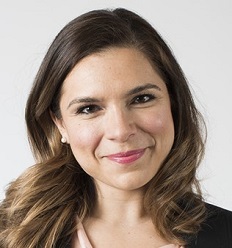
Catalina Miranda
CBV Institute
Director of Professional Practice
Catalina Miranda is the Director of Professional Practice at CBV Institute. Catalina earned her CPA and CBV designations. Before joining CBV Institute in 2018, Catalina spent nearly 8 years with the Ontario Securities Commission’s Corporate Finance Branch, and prior to that, practiced business valuations at EY in Toronto.
Recording
12:45 – 1:30 Being an asset and preventing liabilities when opining assets and liabilities: a case law review
Join Jason Woycheshyn as he reviews recent Court trends of valuations and valuation experts. The presentation examines the key current cases with broader litigation implications. The presentation will focus on legal developments in the pre and post COVID-19 context. After a review of the cases, Jason will provide practical takeaways and lessons for business valuators to offer the most value in legal proceedings.
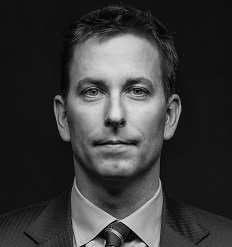
Jason Woycheshyn
Stewart McKelvey
Partner
Jason’s broad practice focuses on litigation, arbitration and dispute resolution. He has extensive trial and appellate experience in courts across Canada. Jason principally litigates corporate, commercial, agribusiness, banking and estates disputes He has experience in securities regulatory and enforcement matters, securities class actions, directors’ and officers’ liability, oppression proceedings and sensitive internal investigations.
recording
1:40 – 2:25 Causation and Financial Losses: Factors to Consider, the Expert’s Role and Reflecting the Impact of Unrelated Factors (COVID-19)
The compensability of financial losses that are the subject of civil litigation partly depends on the finding of an appropriate nexus between the losses and circumstances involving the claim (wrongdoing). Causation considerations may vary depending on the type of claim being advanced. This presentation will review the concept of causation in advancing or defending claims for financial losses including the legal test for causation. Prem and Liviu will discuss the role of the expert (and his or her limitations) in assessing or establishing causation including circumstances that may involve multiple contributors to the losses or multiple actors involved in the claim or wrongdoing. They will also discuss challenges associated with unrelated contributory factors and/or externalities in quantifying compensable losses. The presentation will include thoughts on the division of roles and responsibilities between legal counsel and the expert including instruction on the scope of the expert report and assumptions or inferences to be adopted in the expert’s analysis.
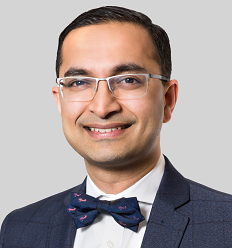
Prem Lobo
Cohen Hamilton Steger & Co. Inc.
Principal
Prem specializes in the quantification of damages, business valuations and forensic accounting across a diverse range of industries including manufacturing, oil and gas, software development, power generation, pharmaceuticals, financial services, real estate, retail and others. Prem’s practice has encompassed various jurisdictions across Canada, the US, Europe, South America and the Caribbean.
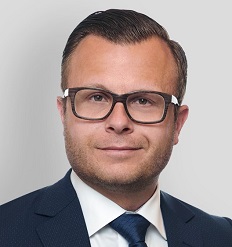
Liviu Cananau
Borden Ladner Gervais
Partner
In his expropriation practice, Liviu provides advice to both public and private sector clients. Liviu has extensive experience working with municipalities on transit, highway and infrastructure projects, including all facets of land acquisition and resolution of compensation. He also has experience providing large infrastructure project procurement, administration, construction and implementation advice.
recording
2:35 – 3:20 Forecast Validation for Economic Loss Quantification
Forecast validation has always been an important component of loss quantification. Though many disputes historically involved stable businesses, the post-pandemic environment has created short- to medium- term volatility that requires us to consider forecasts when quantifying losses in even more cases. In our presentation, we will discuss the role of the CBV in validating forecasts for the purpose of quantifying economic losses. We will cover tools, techniques, and best practices to assess forecasts and integrate forecasts into calculations of lost profits and lost business value.
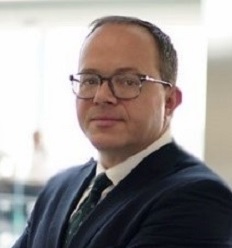
Larry Andrade
Deloitte
Partner, National Dispute Advisory Services Leader
Larry Andrade, CPA, CA, CBV, CFF, CFE, MBA is a Partner and National Leader in Dispute Advisory Services practice, quantifying economic losses and writing expert reports for disputes.
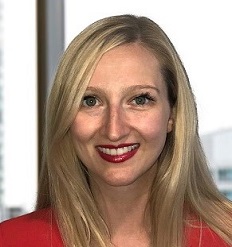
Rachel Ryman
Deloitte
Senior Manager, Dispute Advisory Services
Rachel Ryman, CPA, CA, CBV, is a Senior Manager in Deloitte’s Dispute Advisory Services practice with a focus on quantifying economic losses and writing expert reports for disputes.
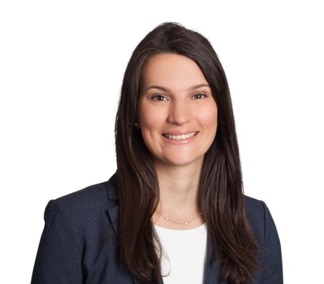
Natalia Raimondi
Deloitte
Manager, Dispute Advisory Practice
Natalia Raimondi, Manager, Dispute Advisory Practice – Deloitte (Toronto)
Natalia is a CBV and Manager in Deloitte’s Dispute Advisory practice. Natalia has 6 years of experience working on engagements involving the quantification of economic losses for lawsuits, insurance and expropriation claims across various industries. She has quantified losses in commercial litigation, expropriation, business interruption, class actions, and personal injury disputes.
RECording
3:30 – 4:30 Blurred Lines – When does an Expert become an Advocate? Tips to maintain your independence and objectivity
In this presentation, the panel will explore the fundamental principle of impartiality from both an expert and legal perspective. Join this session as they evaluate circumstances where you may find yourself in a grey area and share tips for maintaining impartiality.
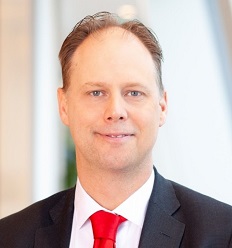
Andrew Cochran
Ernst & Young
Partner
Andrew has over twenty years of experience in financial disputes including, quantification of damages, business interruption claims and valuation of businesses, assets or shareholder interests. He is the Leader of EY’s Litigation Support practice in Ontario and Manitoba. Andrew has testified several times before the Ontario Superior Court of Justice, Manitoba Court of Queens Bench, as well as in various international and domestic arbitrations.

Lindsay Campbell
Hoare Dalton
Partner
After working for a national accounting firm for 13 years, Lindsay joined Marcus & Associates Hoare•Dalton in 2014 and accepted a partnership position in 2016. Lindsay specializes in providing business valuations for matrimonial, shareholder planning or dispute purposes and damage calculations. Lindsay has been qualified as an expert witness in business valuations, in economic loss calculations and in forensic accounting.
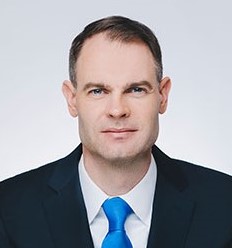
Shaun Laubman
Lax O’Sullivan Lisus Gottlieb
Partner
Shaun practises corporate commercial litigation, including shareholder and partnership disputes, fraud cases, franchise litigation, estate litigation and real estate disputes. Shaun has been recognized as a “Next Generation Lawyer” by Legal 500 and one of The Best Lawyers in Canada in 2020 for Corporate and Commercial Litigation and Real Estate Law.

The Honourable Peter J. Cavanagh
Ontario Superior Court of Justice
The Honourable Glenn A. Hainey is a judge of the Ontario Superior Court of Justice in Toronto, appointed in December 2010.
Justice Hainey received a Bachelor of Arts & Science (B.A.Sc.) in 1971 and a Bachelor of Laws (LL.B.) in 1974 from the University of Western Ontario. He was admitted to the Ontario Bar in 1976.
RECORDING
4:30 – 5:15 Virtual Networking
June 18 – deALS
What are the recent trends in M&A? This stream features presentations on the Challenges of Renewal Energy Valuation, Driving Transformative Value Creation through Deal Making, the Post-COVID Investment Environment, a Global View of the State of Alternative Investments, Valuing Canadian Commercial Real Estate and COVID, and Impact Investing. The day kicks off with an engaging keynote by Shawn Kanungo, Disruption Strategist, at 10:05AM EST. Mr. Kanungo will outline a bold roadmap for the future and explore how to remain competitive and relevant through unexpected approaches to innovation.
10:00 – 10:05 Opening Remarks
10:05 – 10:50 Keynote – Strategy in a World of Disruption
The business world has fundamentally changed. Competition today is unforgiving and ruthless – no one is spared. On the flip side, customer expectations and behaviours have changed more in the last 10 years than in the last 100 years combined.
Disruptive innovation is forcing everyone to reimagine their entire organizations. How do we survive? How do we disrupt ourselves before someone else does? How do we deliver better experiences to our clients? Today, we need to be bold, brave and experimental.
In this awe-inspiring talk, Shawn Kanungo provides a bold roadmap for the future. He explores how we can take unexpected approaches to innovation to remain competitive and relevant.

Shawn Kanungo
Globally Recognized Innovation Strategist
Shawn Kanungo is a strategist who operates at the intersection of creativity, business, and technology.
He has been recognized nationally and globally for his work in the innovation space after 12 years of working at Deloitte. Shawn’s mandate at the firm was to help corporate executives to better understand and plan for the opportunities and threats associated with disruptive innovation.
11:00 – 11:45 The Challenges of Renewable Energy Valuation
This session will focus on reviewing the building blocks of valuation for renewable energy projects (wind / solar). Matthew Gottschling will explore the challenges of relying on transaction multiples and explain why a DCF needs to be relied upon to generate the valuation.
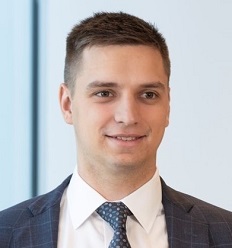
Matthew Gottschling
OMERS Infrastructure
Associate
Since joining OMERS Infrastructure in January 2018, Matthew’s role has included evaluating, diligencing, and executing on new transactions across a variety of infrastructure subsectors (primarily renewables and digital infrastructure). Matthew also has an active role as part of the asset management team overseeing several of OMERS Infrastructure’s investments, including Bridgetex Pipeline, LifeLabs, and Next Bridge.
RECORDING
11:55 – 12:45 Driving Transformative Value Creation Through Deal Making
The panel will share their experiences building value in their respective organizations through merger, acquisition and divestiture activities. The discussion will touch on a number of topics including deal identification, selection, due diligence, valuation and integration and how each can contribute to value creation.
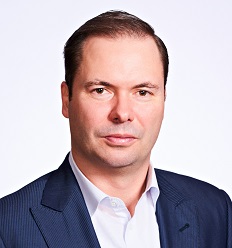
Michael Notto
BDC Capital
Partner, Growth Equity
Mike has over 15 years of diverse professional experience including roles in private equity, corporate strategy, operations, and investment banking. Mike brings a well-rounded and constructive perspective to his partnership with management teams. Mike has a growth-oriented mindset, with experience ranging from strategic planning for a venture-backed, rapidly-growing start-up to working on strategy projects and growth plans for large public companies.
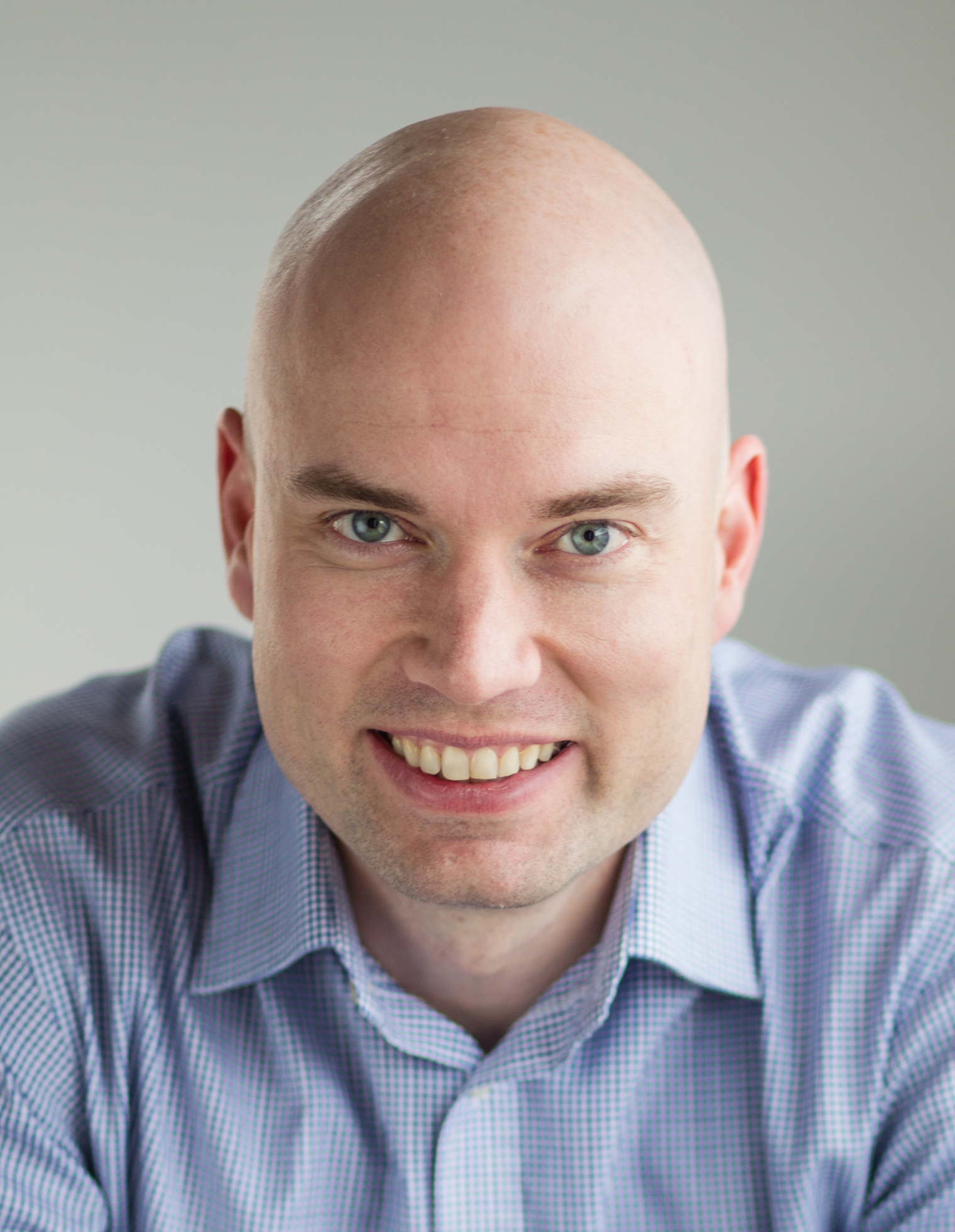
Curtis Johansson
CAI Capital Partners
Partner
Curtis is responsible for deal sourcing, execution and monitoring as well as fundraising. He joined CAI in 2006 prior to which he worked at RBC Capital Markets in Calgary, Alberta and London, England. Curtis is currently Chair of Canadian Heating Products Inc., CMT Holdings Inc., Custom Air Conditioning Ltd., and Javelin Technologies Inc., and a Director of Feeney Utility Services Group. He is also a Director of Automotive Finco Corp. and The KidSafe Project Society.
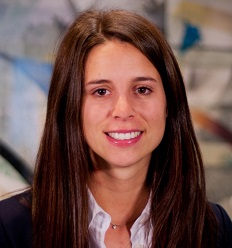
Kaitlyn Barry
GFL Environmental Inc.
Senior Manager, Corporate Development
Kaitlyn joined GFL in 2018 as a Senior Manager in Corporate Development. Kaitlyn is responsible for performing financial due diligence on potential acquisition targets and executing M&A transactions in both solid and liquid waste management as well as infrastructure and soil remediation business lines.
She performs valuations, scenario analysis and forecasting and is actively involved with the negotiation, development and review of definitive transaction agreements.
MODERATOR

Sophie Ngo
TELUS Ventures
Senior Associate
Sophie is responsible for transaction due diligence and portfolio monitoring, with a focus on data analytics and insights. Sophie leverages data collected across the portfolio and from external sources to provide the team and portfolio companies with visualization tools and actionable insights. Prior to joining TELUS Ventures in 2021, Sophie was a manager at PwC Deals.
RECORDING
1:15 – 2:15 Post COVID environment: Investment sectors, themes and trends in the private and growth equity market that may be more attractive relative to the pre/post COVID environment
Join this esteemed panel for a round table discussion of lower and middle market private equity and growth equity investors that invest across Canada and North America. Discussion will also include investment sectors in the private financing space that have seen challenges through the Covid-19 pandemic, investment sectors that are thriving, valuation and multiple expectations for M&A through (and pre and post) the Covid environment, deal specific issues during Covid and future investment domain themes for private financings in Canada now and down the road.

Greg Collings
Fulcrum Capital Partners
Partner
Greg engaged in a wide variety of investment activities, including originating, structuring, and managing investments. He plays a key role in his ability to establish financial reporting structures to improve decision-making both within Fulcrum’s portfolio companies and on investment teams.
Greg is on the committee of an annual fundraiser in support of The Alzheimer Society of Toronto.
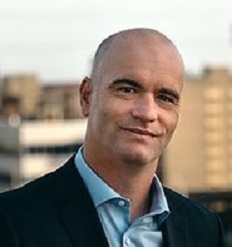
Rob Normandeau
Seafort Capital
President
Rob co-founded SeaFort in 2012. Prior to that, he served as CEO of a publicly traded investment company.
He previously practiced law in the Toronto office of a major New York-based law firm, where he specialized in corporate finance and M&A. Rob was recognized in 2009 as one of Canada’s Top 40 Under 40. He is admitted to the practice of law in Ontario, Nova Scotia and New York.
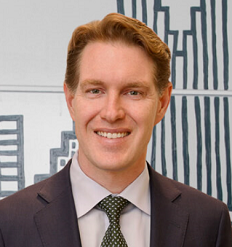
Dale Tingley
Canadian Business Growth Fund
Senior Investor
Dale helps to lead the investment team’s activities in origination, execution, and portfolio management.
Having grown up in an entrepreneurial family, he enjoys partnering with ambitious entrepreneurs, helping them take their business to the next level.With 20 years’ experience in PE, Dale has invested $800 million in over 50 companies. His investments have focused on growth companies, ranging from early-stage scale-ups to large growing enterprises with thousands of employees.
MODERATOR

Matthew Hall
Market Square Equity Partners
Managing Partner
Matt’s focus is on building platform investments in long-term sustainable companies.
Matt holds an MBA from the Richard Ivey School of Business at the University of Western Ontario and a BACS in Business Administration from Huron College University. He is also a Chartered Business Valuator (CBV) and a member of the Canadian Institute of Chartered Business Valuators. Matt has served on the Board of Directors for both corporate investments and charitable foundations.
recording
2:25 – 3:10 The State of Alternative Investments: A Global View
The world of alternative investments continues to grow and change. Nearly $10 trillion in assets have flowed into the alternative investment industry in the last fifteen years. Now AI is starting to show up in mutual funds and ETFs. What might the future hold?
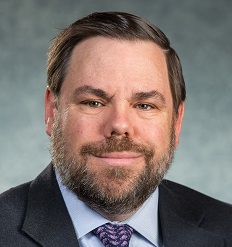
Dr. Keith Black
CAIA Association
Managing Director, Content Strategy
Keith has over thirty years of financial market experience, serving approximately half of that time as an academic and half as a trader and consultant to institutional investors. He currently serves as Managing
Director of Content Strategy for the CAIA Association. He contributes to The CFA Digest, and has published in The Journal of Wealth Management, The Journal of Trading, The Journal of Investing, and The Journal of Alternatives Investments.
sponsorED by:

RECORDING
3:20 – 4:05 Valuing Canadian Commercial Real Estate and COVID-19
Join Michael Mayville as he provides a brief overview on the major sectors: Office, Retail, Industrial, Residential and Hotel and will likely lead the group through an example of each. He will focus on key considerations for each sector and how the related government advisories and population restrictions have impacted the approach to property valuations. Michael will also share experiences he has had within the Oxford portfolio and share perspectives on how we dealt with valuations in a period of higher uncertainty.
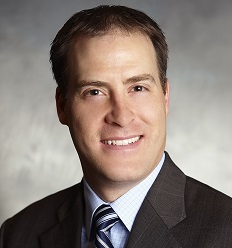
Michael Mayville
Oxford Properties Group Inc.
Vice President, Valuations and Analytics
Michael heads up the team responsible for the valuation of investment assets, risk analysis, asset management analytics and performance measurements within the CFO group.
Michael’s been with Oxford for 19 yrs and has had a number of responsibilities including valuations, asset management, investment sales and portfolio management of Office, Retail, Industrial, Hotel and Multi-Family Residential investments across major markets in Canada, the US, UK, France, Germany and Australia.
RECORDING
4:15 – 5:00 Impact Investing – taking off faster than expected
The impact investing market has grown tremendously with an estimated $502 billion in impact investing AUM worldwide, according to a recent study published by the Global Impact Investing Network. This growth has been spurred by shifting societal expectations about the roles and responsibilities of businesses and the growing importance of stakeholder capitalism. Today’s session will consider the evolution of impact investing, discuss impact measurement and cover protecting against so called ‘impact-washing’. Join us with thought leaders on the topic to learn more about this emerging style of investing.

Tanya Carmichael
OTPP
Managing Director and Head of Global Funds
Biography Unavailable
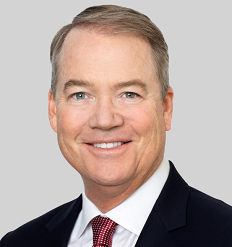
Steve Ellis
The Rise Fund
Co-Managing Partner
Prior to joining TPG in 2015, Steve was the CEO of Asurion, the world’s leading provider of technology protection services with over $6B in revenues.
Prior to Asurion, Steve served as the Global Managing Partner for Bain & Company. Steve is a graduate of UC Berkeley and Stanford Business School, where he is a regular guest lecturer.
He also serves on the boards of The Bridgespan Group, InStride, Dreambox Learning, EverFi and Charles Schwab.

Tania Carnegie
KPMG IMPACT at KPMG
Global Lead, Private Equity & Asset Management
Biography Unavailable
MODERATOR
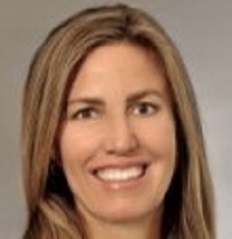
Dominique Barker
CIBC Capital Markets.
Head of Sustainability Advisory
Dominique was previously responsible for managing institutional socially responsible investments, Canadian value and real estate portfolios. She led CIBC Asset Management’s efforts to incorporate environmental, social and governance factors into all investment processes.
Dominique previously held roles in research, institutional equity sales, investment banking, audit, and corporate advisory at several firms.
SPONSORED BY:
RECORDING
5:00 – 6:00 Networking Cocktails
REGISTER EARLY TO RESERVE YOUR ACCESS TO CONGRESS 2021
The registration fee provides live access to all three streams of content over three days of the Congress.
Registered attendees will also receive access for one-year to any recordings of Congress sessions which CBV Institute has authorization to record.
Cancellation Policy:
Registration may be cancelled before May 21, 2021 for full refund. No refunds after May 21, 2021.
This event is currently only available for users in the following groups: everyone.
To register for this event, please login above.
The information, analysis and opinions expressed in Congress 2021 presentations and recorded webinars are solely those of the presenter/author and are not endorsed by CBV Institute or any of its Members. CBV Institute does not review Congress presentations for content accuracy.

